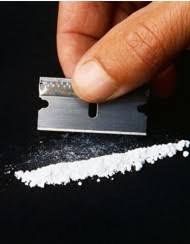November 13th, 2011 by Toni Brayer, M.D. in Research
No Comments »

 Remember the 1991 Gulf War between the United States and Iraq (aka: “Operation Desert Storm”)? A new study has been published in the American Journal of Epidemiology that assessed the health status of 5,469 deployed Gulf War veterans compared to 3,353 non deployed veterans. At 10 year follow up, the deployed veterans were more likely to report persistent poor health. The measures were functional impairment, limitation of activities, repeated clinic visits, recurrent hospitalization, perception of health as fair or poor, chronic fatigue syndrome illness and post-traumatic stress disorder.
Remember the 1991 Gulf War between the United States and Iraq (aka: “Operation Desert Storm”)? A new study has been published in the American Journal of Epidemiology that assessed the health status of 5,469 deployed Gulf War veterans compared to 3,353 non deployed veterans. At 10 year follow up, the deployed veterans were more likely to report persistent poor health. The measures were functional impairment, limitation of activities, repeated clinic visits, recurrent hospitalization, perception of health as fair or poor, chronic fatigue syndrome illness and post-traumatic stress disorder.
From 1995 to 2005, the health of these veterans worsened in comparison to the veterans who did not deploy to the Persian Gulf. A study done in the United Kingdom that compared Gulf War veterans to UN peacekeepers who served in Bosnia and other non-deployed Gulf War soldiers found Read more »
*This blog post was originally published at EverythingHealth*
January 30th, 2011 by Glenn Laffel, M.D., Ph.D. in News, Research
No Comments »

 Although cocaine use has declined steadily since its peak in the early 1980s, public health officials estimate that about 7 million Americans used the drug at least once last year. Many of these folks are addicted to the drug, and its intense, short-lived euphoric effects mean the addiction is terribly difficult to overcome.
Although cocaine use has declined steadily since its peak in the early 1980s, public health officials estimate that about 7 million Americans used the drug at least once last year. Many of these folks are addicted to the drug, and its intense, short-lived euphoric effects mean the addiction is terribly difficult to overcome.
Addiction specialists believe existing treatment paradigms for cocaine addiction can be enhanced by a vaccine that prevents the drug from crossing the blood-brain barrier, thus blunting its euphoric effects. Scientists have worked hard to develop such a vaccine, but have had limited success so far.
About a year ago for example, Thomas Kosten and colleagues at Baylor reported partial success in a human trial of a cocaine vaccine. In that trial, 38 percent of subjects who received all five shots in the vaccine series achieved sufficient antibody levels to blunt the effects of the drug. In that subset, 53 percent of the subjects stopped using cocaine, meaning that overall, the vaccine worked about 20 percent of the time. Read more »
*This blog post was originally published at Pizaazz*
 Remember the 1991 Gulf War between the United States and Iraq (aka: “Operation Desert Storm”)? A new study has been published in the American Journal of Epidemiology that assessed the health status of 5,469 deployed Gulf War veterans compared to 3,353 non deployed veterans. At 10 year follow up, the deployed veterans were more likely to report persistent poor health. The measures were functional impairment, limitation of activities, repeated clinic visits, recurrent hospitalization, perception of health as fair or poor, chronic fatigue syndrome illness and post-traumatic stress disorder.
Remember the 1991 Gulf War between the United States and Iraq (aka: “Operation Desert Storm”)? A new study has been published in the American Journal of Epidemiology that assessed the health status of 5,469 deployed Gulf War veterans compared to 3,353 non deployed veterans. At 10 year follow up, the deployed veterans were more likely to report persistent poor health. The measures were functional impairment, limitation of activities, repeated clinic visits, recurrent hospitalization, perception of health as fair or poor, chronic fatigue syndrome illness and post-traumatic stress disorder.











